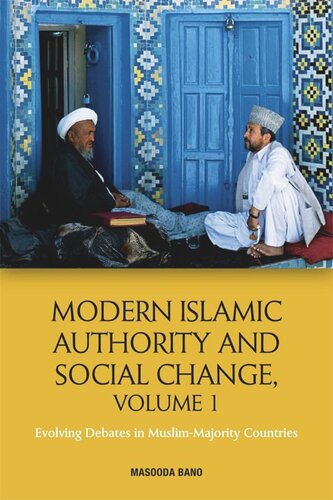

Most ebook files are in PDF format, so you can easily read them using various software such as Foxit Reader or directly on the Google Chrome browser.
Some ebook files are released by publishers in other formats such as .awz, .mobi, .epub, .fb2, etc. You may need to install specific software to read these formats on mobile/PC, such as Calibre.
Please read the tutorial at this link: https://ebookbell.com/faq
We offer FREE conversion to the popular formats you request; however, this may take some time. Therefore, right after payment, please email us, and we will try to provide the service as quickly as possible.
For some exceptional file formats or broken links (if any), please refrain from opening any disputes. Instead, email us first, and we will try to assist within a maximum of 6 hours.
EbookBell Team

4.0
86 reviewsAt the turn of the twenty-first century, scholarship and policy debate on Islam and Muslim societies has come to focus primarily on Islam’s ability to make young Muslims gravitate towards anti-modernity movements. Many attribute Islamic militancy, as well as the general socio-economic and political stagnation experienced in some Muslim societies, to Islamic theological or legal dictates. Yet Islamic scholarly tradition is highly pluralistic, and today’s leading Islamic authority structures are developing competing conceptual and methodological approaches which vary greatly in their ability to engage with societal change.
This volume focuses on the four most influential Islamic authority structures with a visible following among Muslims around the globe. It makes a major contribution to refining our understanding of the plurality of Islamic tradition in contemporary times, helping to counter the dominant narrative of an inevitable clash of civilisations. It presents evidence of great creative energy within many Islamic scholarly platforms (old as well as new); an energy which aims to provide dynamic answers to modern day challenges from within the Islamic legal and theological tradition.